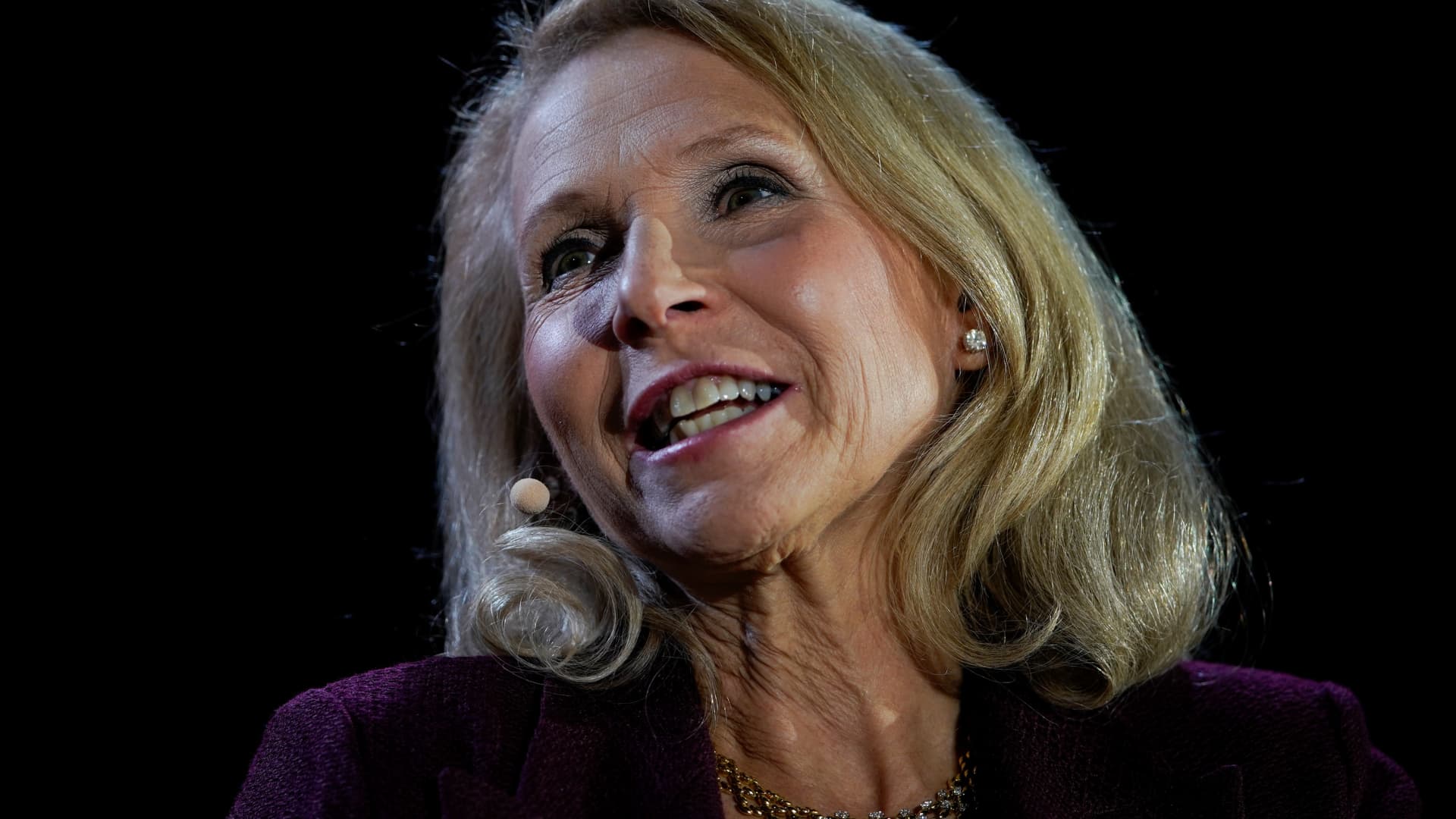
Former President Donald Trump (left) and President Joe Biden face off in the first debate of the 2024 presidential campaign on June 27, 2024 in Atlanta.
Andrew Harnik | Getty Images News | Getty Images
At the recent US presidential debate, both candidates exchanged economic-related contradictions. Complaints also included high inflation during the pandemic.
“He caused inflation,” Trump said of Biden during the June 27 debate. “I gave him a country where there is virtually no inflation,” he added.
Biden responded that inflation was low during Trump’s time in office because the economy was “bottomed out.”
“He decimated the economy, absolutely decimated the economy,” Biden said.
But the cause of inflation is not so black and white, economists say.
In fact, Biden and Trump are not responsible for much of the inflation consumers have experienced in recent years, they said.
“Neither Trump nor Biden are to blame”
Global events beyond Trump or Biden’s control have wreaked havoc on supply and demand dynamics in the U.S. economy and led to higher prices, economists said.
There were other factors too.
For example, the Federal Reserve, which operates independently of the Oval Office, has been slow to act to curb high inflation. Some of Biden and Trump’s policies, such as pandemic relief packages, may also have played a role, as does so-called “greed inflation.”
“I don’t think it’s a simple yes/no answer,” said David Wessel, director of the Hutchins Center on Fiscal and Monetary Policy at the Brookings Institution, a left-leaning think tank.
“In general, presidents get more credit and blame for the economy than they deserve,” he said.
More from Personal Finance:
If he wins, Trump could scale back student loan forgiveness programs
What a Supreme Court Ruling Could Mean for Biden’s ‘Billionaire Tax’
Biden and Trump accuse each other of ruining Social Security and Medicare
The fact that Biden is seen as fueling high inflation is partly due to optics: He took office in early 2021, around the time inflation was rising significantly, economists say.
Likewise, the Covid-19 pandemic plunged the US into a severe recession during Trump’s term, sending the consumer price index to near zero in the spring of 2020 as unemployment exploded and consumers cut spending.
“In my view, neither Trump nor Biden is to blame for high inflation,” said Mark Zandi, chief economist at Moody’s Analytics. “The blame lies with the pandemic and the Russian war in Ukraine.”
The main reasons for the increase in inflation
Inflation has many tentacles. At high levels, high inflation is largely due to a mismatch between supply and demand.
The pandemic has upended the typical dynamic. For one thing, it has disrupted global supply chains.
There was a labor shortage: workers were absent due to illness. Daycare centers are closed, making parents’ work more difficult. Others were afraid of getting sick at work. A decline in immigration also reduced the labor supply, economists said.
For example, China closed factories and cargo ships could not unload at ports, reducing the supply of goods.
Meanwhile, consumers have changed their purchasing behavior.
They bought more physical things like living room furniture and desks for their home offices as they spent more time indoors — a shift from pre-pandemic norms when Americans tended to spend more money on services like dining out, traveling and going to movies and concerts .
Cargo containers pile up on ships at the Port of Los Angeles, the country’s busiest container port, in San Pedro, California, on October 15, 2021.
Mario Tama | Getty Images News | Getty Images
High demand that boomed with the general reopening of the U.S. economy, combined with shortages of goods, led to higher prices.
There were other related factors too.
For example, automakers didn’t have enough semiconductor chips needed to build cars, while rental car companies sold their fleets because they didn’t believe the recession would be short-lived, making rentals more expensive when the economy quickly rebounded said Wessel.
With Covid cases reaching record highs through 2022 and further disrupting supply chains, Russia’s war in Ukraine has “fueled” inflation by fueling higher global prices for commodities such as oil and food, Zandi said.
As a result, global inflation reached levels “higher than in several decades,” the International Monetary Fund wrote in October 2022.
“We only need to look at the still-high inflation rates in most other advanced economies to see that this period of inflation was largely about global trends… rather than the specific policies of any particular government (although of course that was the case ). play some role),” Stephen Brown, deputy chief economist for capital economics in North America, wrote in an email.
Effects of large spending bills “only clear in retrospect”
However, Biden and Trump are not entirely innocent: During the pandemic, they gave the green light for additional government spending, which, for example, contributed to inflation, economists say.
For example, the American Rescue Plan — the $1.9 trillion stimulus package that Biden signed in March 2021 — offered $1,400 stimulus checks, higher unemployment benefits, and a larger child tax credit for households, among other relief.
The policy has led to “some good things,” such as a strong labor market and low unemployment, said Michael Strain, director of economic policy studies at the American Enterprise Institute, a right-leaning think tank.
But its scale was larger than the U.S. economy needed at the time and caused prices to rise by putting more money in consumers’ pockets, boosting demand, he said.
“I think that President Biden bears some responsibility for the inflation that we have experienced over the last few years,” Strain said.
He appreciated the American Rescue Plan contributed about 2 percentage points to underlying inflation. The consumer price index peaked at around 9% in June 2022, the highest level since 1981. It has since fallen to 3.3% by May 2024.
The Federal Reserve – the US central bank – aims for a long-term inflation rate of close to 2%.
“I think if it hadn’t been for the American Rescue Plan, there would still have been inflation in the U.S.,” Strain added. “That’s why I think it’s important not to overstate the situation.”
However, Zandi viewed the inflationary effects of the ARP as “good” and “desirable” because it returned the economy to the Fed’s long-term target inflation rate after an extended period of below-average inflation.
Trump also approved two stimulus packages worth around $3 trillion in March and December 2020.
These so-called “fiscal policy” responses are a hedge against a lousy economic recovery that may have been overdone after the U.S.’s lackluster response to the Great Recession, which left the country mired in high unemployment for years, Wessel said.
The fact that the US may have taken too many stimulus measures is the fault of the presidents, but it is “only clear in hindsight,” he said.
Biden and Trump have also taken other actions that could contribute to higher prices, economists said.
For example, Trump imposed tariffs on imported steel, aluminum and several goods from China, which Biden left largely intact. Biden also imposed new import tariffs on Chinese goods such as electric vehicles and solar panels.
The Fed and “Greed Inflation”
Fed officials also bear some responsibility for inflation, economists say.
The central bank uses interest rates to control inflation. Rising interest rates increase borrowing costs for businesses and consumers, which cools the economy and therefore inflation.
The Fed raised interest rates to their highest level in about two decades but was initially slow to respond, economists said. They were first increased in March 2022, about a year after inflation started rising.
Strain said they had also waited too long to scale back “quantitative easing,” a bond-buying program intended to stimulate economic activity.
“That was a mistake,” Zandi said of the Fed’s policy. “I don’t think anyone would have done it right under the circumstances, but in hindsight it was a mistake.”
Some observers have also pointed to so-called “greed inflation” – the idea that companies exploit the narrative of high inflation to raise prices more than necessary and thereby increase their profits – as a contributing factor.
This is unlikely to have been a cause of inflation, although it may have contributed slightly, economists said.
“To the extent that something like that happened – which I’m not sure about – that would be a very minor factor in the inflation that we had,” Strain said. He estimates that the dynamic would have contributed significantly less than one percentage point to the inflation rate.
“Companies are always looking for ways to raise prices when they can,” Wessel said. “I think they took advantage of the inflationary climate, but I don’t think they caused it.”
Source link
2024-07-03 14:58:37
www.cnbc.com














